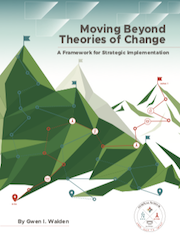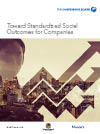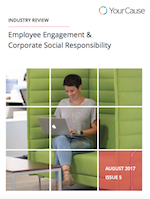Site Search
- resource provided by the Forum Network Knowledgebase.
Search Tip: Search with " " to find exact matches.
CNJG’s work throughout this year will be driven by the 2023 – 2025 Strategic Plan, and you’ll see that reflected in the monthly president’s letter.
This month, I want to highlight goal 3 of the strategic plan: amplify our collective voice. As part of this goal, we’ll create our first-ever “social sector-wide policy and advocacy agenda designed to provide leadership for sector-critical issues and causes, including those that advance equity.”
As we celebrate Black History Month, and Women’s History in March, it’s important to remember change starts with advocacy, and philanthropy has a critical role to play. Our recent Advocacy Series for Funders outlined the following: basics for funders, how to involve your trustees in advocacy, and how to evaluate your advocacy efforts.
The Council’s Leadership and Policy Committee met in January to begin exploring what our policy agenda would look like. Guided by the strategic plan, our priorities will closely align with the New Jersey Center for Nonprofits’ Advocacy Agenda.
The Center’s agenda embraces strategies that correlate seamlessly with our own strategic plan: expanding and deepening relationships with policy makers; highlighting the societal importance of the nonprofit community to the well-being of our state; ensuring public policy positions are equitable and anti-racist; as well as working with key partners to advance equity.
CNJG’s policy agenda will also be informed and inspired by United Philanthropy Forum’s 6 policy principles: champion racial equity and justice, support fair tax policy and regulation, enhance charitable giving, defend and strengthen democracy, promote civic engagement, and strengthen the nonprofit sector’s impact.
Back in person this year, both the Forum and the Center’s agendas will factor into our conversations during Foundations on the Hill. This event, scheduled from February 27 to March 1, is an opportunity for philanthropic leaders and advocates to meet with our representatives in Washington to share key issues and communicate the important roles foundations and philanthropy play in serving the public good.
While we’re deep in the planning for FOTH, there’s still time if you would like to join the CNJG delegation. Please contact me as soon as possible.
CNJG envisions a healthy, thriving, and civically engaged NJ where people of all places, racial identities, socio-economic backgrounds, abilities, and identity expressions are valued for their gifts and talents, and we all can reach our full potential and participate generously in the common good. Creating and implementing a policy agenda to guide our work is another way we’ll move forward our vision.
Theresa Jacks, President and CEO
Council of New Jersey Grantmakers
The Newark Funders Affinity Group is convening an emergency meeting to discuss the impact that the Trump administration will have on the local New Jersey community, especially with its new migration immigration policy.
At this meeting you will have the opportunity to hear from local leaders of community-based organizations that are beginning to plan for the fallout from these new federal policies. They will share what they anticipate will happen, what is needed to best prepare, and how philanthropy can help.
This event is being held at the Victoria Foundation but attendance can also be via Zoom. Instructions are provided in the e-mail confirmation on how to obtain the Zoom meeting instructions.
Cost: Free for CNJG Members; $50 for Non Member Grantmakers
The Bridging The Gap: Blacks in Philanthropy conference, is organized by the Smith Family Foundation.
Their mission for this conference is to promote philanthropy and drive social change in the community, and this event is a vital step toward achieving that goal. The conference is expected to draw over 300 attendees, including philanthropy professionals, non-profit executives, community leaders, and interested individuals. The agenda features keynote speeches, panel discussions, workshops on racial equity, diversity, and inclusion in philanthropy, and strategies for advancing social justice. This conference is a unique opportunity to engage in collaborative discussions, gain valuable insights, and build meaningful connections with like-minded individuals who share a passion for creating positive change. Together, we will explore innovative strategies, best practices, and impactful initiatives that empower and uplift black lives.
Cost: $100
Open to all Grantmakers
The Provident Bank Foundation (PBF) today named its Major Grant recipients for its second cycle of 2021. The Foundation awarded nearly $450,000 of total funding to 27 nonprofit organizations within the Foundation’s three priority areas of Community Enrichment, Education and Health, Youth & Families.
Grants provide funding between $5,000 and $25,000 to organizations across the New Jersey, New York and Pennsylvania communities served by Provident Bank.
“We are thrilled to offer funding opportunities to some of the outstanding nonprofits that are continually raising up our community,” said Samantha Plotino, Executive Director of The Provident Bank Foundation. “From medical services to educational programs to food banks, these organizations are very valuable to residents across New Jersey, New York and Pennsylvania. Additional funding will allow their various programs to continue to thrive and make an impact.”

Effecting systemic change through philanthropic initiatives requires not only a strategy but a well-constructed implementation plan focused on "people, partners, and platforms.” According to a new report, Moving Beyond Theories of Change: A Framework for Strategic Implementation, philanthropic organizations hoping to achieve impact must align the partners, approaches, and organizational commitments before they begin to design programs, issue Requests for Proposals, or even hire staff. The report further suggests frameworks should include diversity, equity, and inclusion (DEI) efforts and partnerships with intermediaries and donor collaboratives.

A new pilot study from The Conference Board and the Impact Genome Project® (IGP) introduces standardized social outcomes to help measure and compare the performance of societal investments. The standardized outcomes allow for benchmark metrics, including efficacy rates and cost per outcome. The study used data from 16 companies whose funding contributed to nearly 650 nonprofit programs. The benchmarks provide new insights into the effectiveness of corporate societal investments.

Twice a year, the YourCause team publishes our Industry Review focused on evaluating employee engagement and corporate social responsibility programs. This report uses performance data collected by the YourCause Employee Engagement platform between January and December of 2016. We identify trends, activities and benchmarks in employee engagement and corporate social responsibility. Our clients, industry peers, and other interested parties may use this data as a barometer for performance measurement.
The William Penn Foundation commissioned a study to move beyond the anecdotal and see if and how students benefited from being involved in some of its grantee arts programs. The research by WolfBrown, working with Johns Hopkins University, showed that participating in the arts help students develop traits that contribute to later success in life. Younger students especially showed measurable growth in characteristics like tolerance for other points of view, an understanding that hard work can develop their knowledge and abilities, and their motivation to achieve.
There is widespread and growing recognition in the nonprofit sector about the importance of evaluation — not only for measuring impact, but also for improving programs and better serving communities. While grantmakers generally see evaluation as necessary, most are not yet investing enough resources in this area.
This guide discusses six principles for successful evaluation capacity building. By applying these principles, grantmakers can make the most of our evaluation investments and help our grantees become more effective and sustainable organizations.
